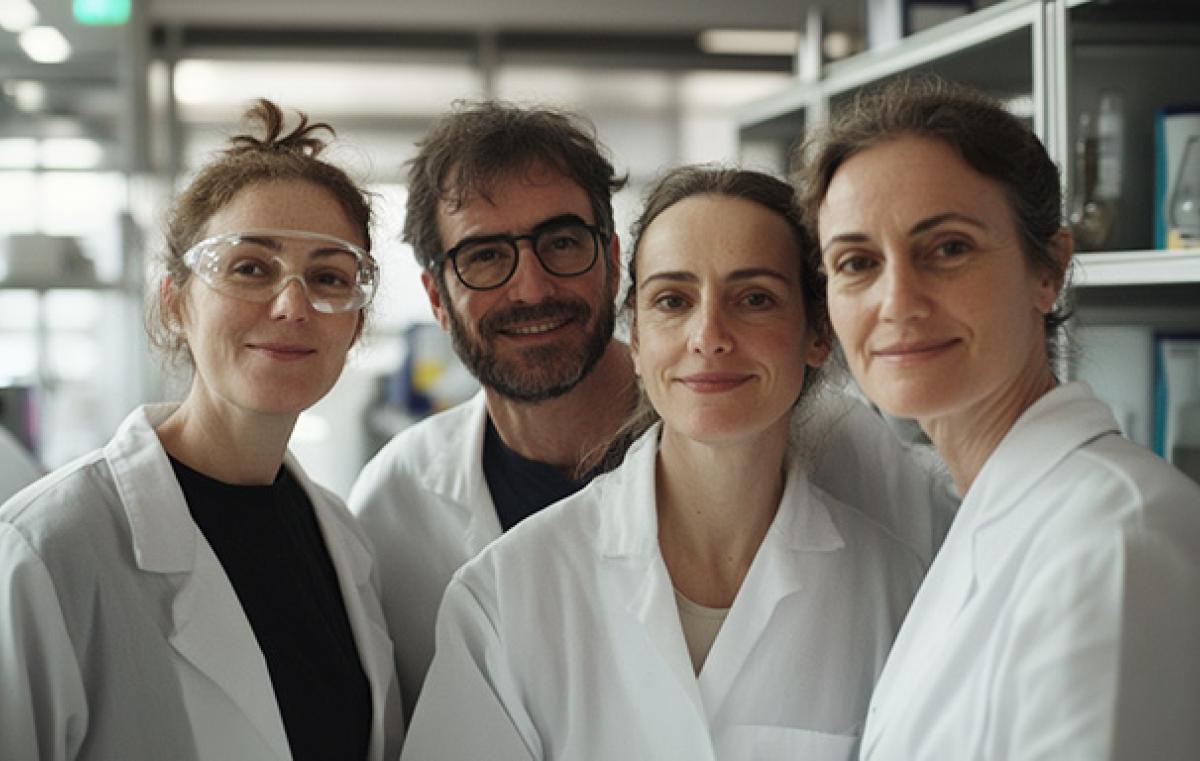Can a Placenta Cure Cancer?
BIU’s collaboration with biotechnology company Pluri (Nasdaq:PLUR, TASE:PLUR) suggests it can

In a significant step forward for cancer immunotherapy, biotechnology company Pluri has announced a collaboration with Bar-Ilan University to advance MAIT cell therapy for solid tumors. The partnership, supported by the Israel Innovation Authority, brings together cutting-edge cellular technology with innovative genetic engineering to tackle one of medicine's most challenging frontiers: solid tumors.
The collaboration centers on a novel approach to cancer treatment that could overcome current limitations in immunotherapy. While immunotherapy has shown remarkable success in treating blood cancers, solid tumors have remained a challenge. This partnership aims to change that by combining Pluri's unique MAIT cell platform with Bar-Ilan's innovative Siglec-based Chimeric Switch Receptors (CCRs) technology.
"For over two decades, our team has been at the forefront of cell therapy research," says Yaky Yanay, CEO and President of Pluri. "This promising collaboration, supported by the Israel Innovation Authority for its innovative potential, will help create more effective immunotherapies for cancer patients."
At the heart of this research lies a unique source of immune cells: the human placenta. Pluri has developed a patented method to isolate and grow MAIT cells from placentas donated by healthy women. These cells possess remarkable characteristics that make them particularly suited for cancer treatment, including potent effector functions, multiple tumor-fighting mechanisms, and high expression of chemokine receptors that help them target tumor sites. Importantly, MAIT cells also show reduced risk of graft-versus-host disease (GvHD), a serious complication in allogeneic cell therapies.
Professor Cyrille Cohen, Head of laboratory of tumor immunotherapy at Bar-Ilan University, brings his expertise in developing T-cell based therapy based on chimeric antigen receptors (CAR) engineering to the project. "Combining our Siglec-based receptor technology and expertise in clinical CAR vector design with Pluri's advanced MAIT cell cultivation capabilities could unlock the unique biological properties of these cells," says Cohen. "This partnership has the potential to overcome the solid tumor challenge by creating powerful CAR-MAIT cell therapies specifically targeted at solid tumors."
The collaboration comes at a crucial time in the evolution of cancer treatment. The global cancer immunotherapy market, valued at $111 billion in 2023, is projected to reach $312 billion by 2033, growing at an annual rate of 10.9%. This remarkable growth reflects both the promise and the increasing importance of immunotherapy in cancer treatment.
The partnership aims to effectively integrate these two innovative technologies and advance to pre-clinical studies, potentially opening new horizons in cancer treatment and bringing hope to patients worldwide.